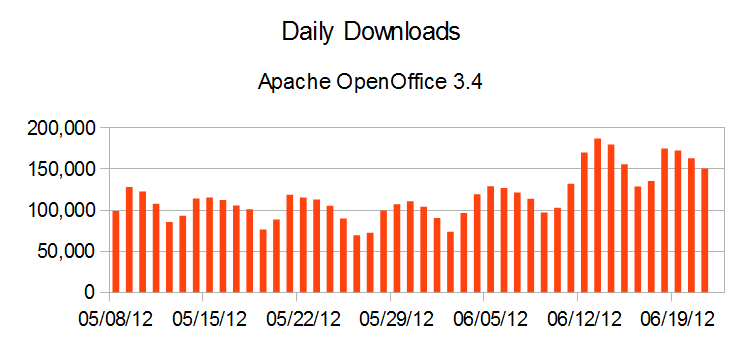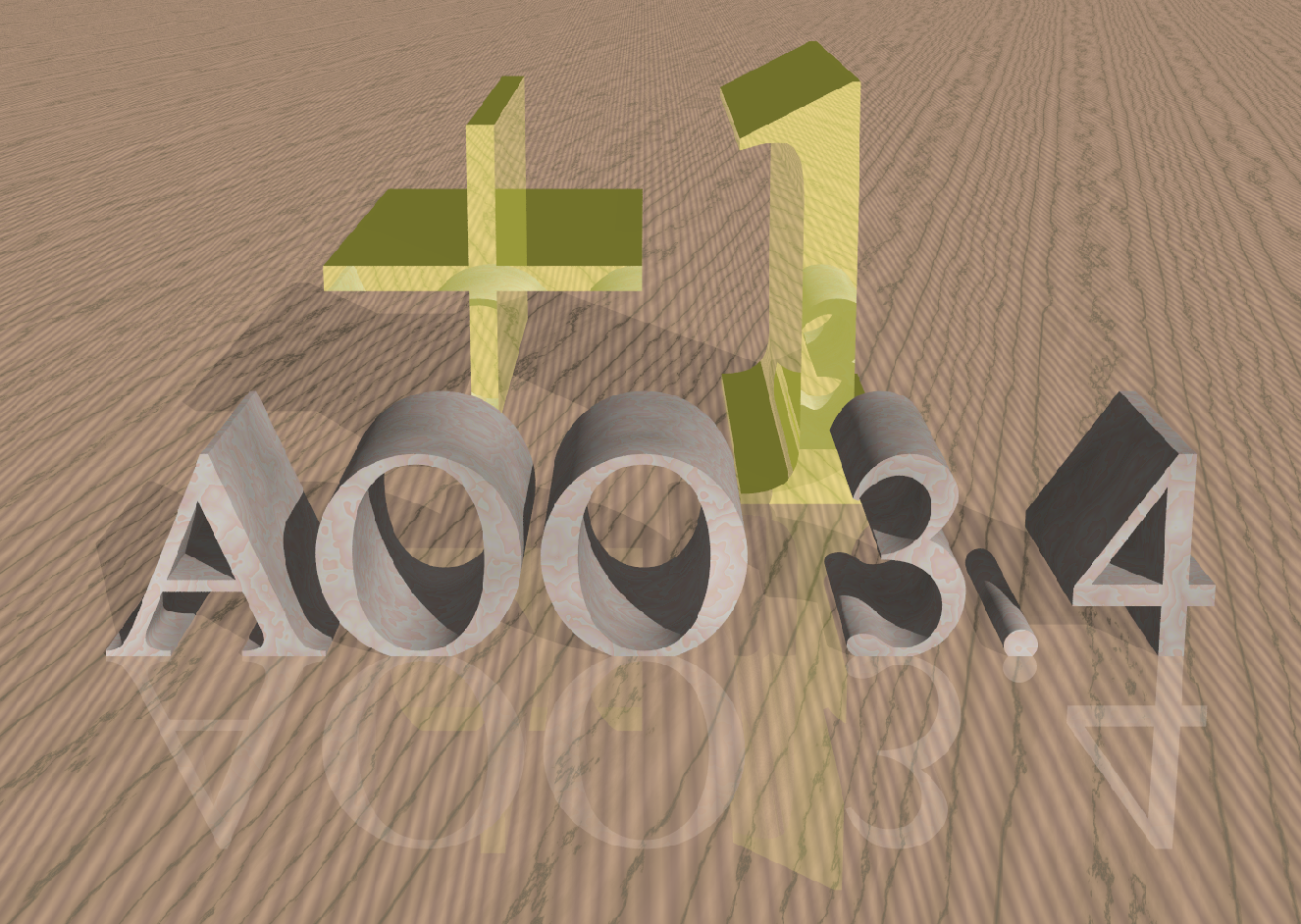You may have read, on the Apache OpenOffice blog, news that the project has had 5 million downloads in the first 6 weeks since the release of version 3.4. And as the above chart shows, the download rate has increased in the past two weeks, as we’ve started to roll out the upgrade notifications to OpenOffice.org 3.3 users.
When I mention the “5 million” achievement, the reaction is generally along the lines of, “That’s excellent !!! Right? That is good, isn’t it?” The fact is the number is large, but without comparison or context, it is hard to gauge. I think I can provide some comparisons and context to put these numbers in perspective.
First, let’s look at OpenOffice.org 3, and their famous claim of 100 million downloads. That was in the time period from October 13, 2008 to October 28, 2009, so 380 days. That averages out to around 260K downloads/day. I’m not quite sure what they counted as a “download”, whether just full installers, or language packs as well. And that time period overlaps with several releases (3.0.0, 3.0.1, 3.1.0 and 3.1.1, so there is some double, triple and quadruple counting of users due to upgrades.
For another comparison, let’s take a look at LibreOffice. They claimed 7.5 million downloads between January 2011 and October 2011. That averages out to 27K downloads/day. And again, it is not clear if that counts all downloads, including multiple downloads by the same user as they update from release to release.
So how does Apache OpenOffice 3.4 compare? Let’s state the numbers as conservatively as we can. We’ll count only installer downloads, not language packs or SDK’s. And we’re counting only for a single release, AOO 3.4, so there is no double counting due to upgrades. Based on these assumptions, our average download rate has been 118K downloads/day. (But as the chart shows, since we enabled the update notifications, the rate is now more like 170K downloads/day.
So overall I think we’re doing quite well. There is room for improvement, but it is a good baseline against which we can show progress. One thing we can do to grow these numbers to increase the native language support, to restore some of the key translations. If you are interested in volunteering with Apache OpenOffice, you should read this page, and then send an email to our mailing list to introduce yourself and your interest.
A quick side note: Some readers will observe that Linux users get their software from the distros, not from downloading from a website. This is a safe assumption for most, but not all Linux users. But that doesn’t really change the math much. Assume that none of the LibreOffice downloads are from Linux users. Assume that the entire 27K/day are entirely Windows and Mac users. Then, we can do an apples-to-apples comparison to the Apache OpenOffice numbers, where we know that only 3% of the downloads are from Linux users. So the better comparison would then be to compare a very conservative 0.97 * 118K = 114 K/day versus LO’s best-case 27K/day for Windows and Mac. A similar calculation could be done on the legacy OOo 3 figure, with similar results.

